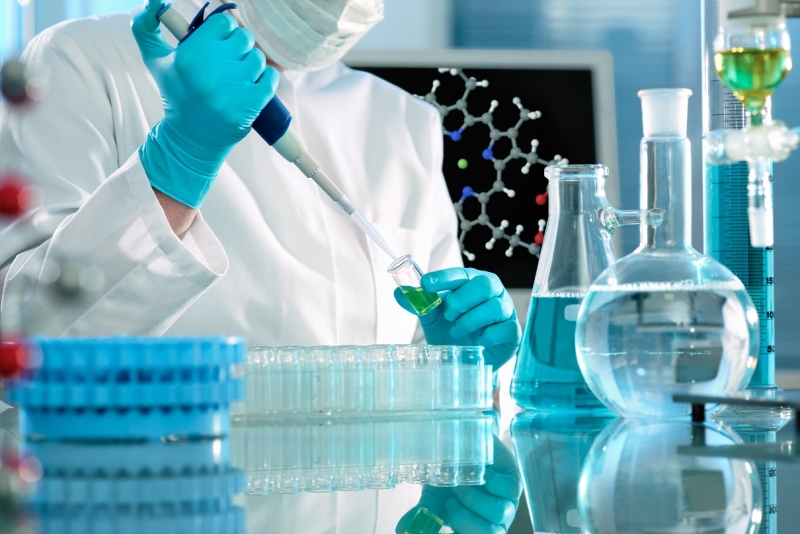
The Biochemistry wing of SDCPL performs a wide range of diagnostic tests for both inpatients and outpatients. The laboratory includes sections that perform assays not readily available elsewhere including: tissue typing, laser-activated flow cytometry, molecular genetics diagnosis, complete toxicology services, immunohistochemical techniques, etc. The biochemistry section is a new generation laboratory, fully equipped with the latest state of the art technology. Analytes of serum and other body fluids are measured like routine and specific assays of proteins in serum, urine and cerebrospinal fluid, including specialized tests like oligoclonal protein banding.
The SDCPL laboratory accepts stat requests and aims for a rapid turn-around time on all samples. This laboratory also applies mass spectroscopy for rapid detection of a broader array of toxic agents and drugs than possible with less advanced technology. The monitoring of immunosuppressant drugs such as cyclosporine and immunoglobulins is also done. Mass Spectrophometry also permits analysis of renal calculi within 30 minutes.
Immunology section performs hormonal and other non-infectious assays using Chemiluminiscent Immunoassay (CLIA) Fluorescence intensity Luminescence, Fluorescence polarisation, and Enzyme-linked Immunosorbent(ELISA) assays. Of special note are the fetal lung reactivity profiles and alpha fetoprotein assays in serum and amniotic fluid for neural tube defect screening and tumor marker studies.
Genetics: Complete HLA typing for transplantation, tests for genetic mapping of diseases,etc. are performed in the Genetics section of the laboratory. Prenatal and/or carrier studies for inherited disorders (spinal muscular atrophy, cystic fibrosis, frontotemporal dementia, etc), and genetic profiles of malignancies are also analysed.
Advantages:
- HPLC technique for estimation of HbA1c as well as for screening of haemoglobinopathies.
- Reporting of HbA1c in dual units(NGSP and IFCC)
- Full panel of allergy tests performed.
- Introduced TB Gamma Interferon test.
- The fetal risk assessment menu is designed to aid the Centerian identify, manage, and follow up high-risk and/or complicated pregnancies.
- Maternal serum screening (Triple Test) is used to detect cases of neural tube defects, trisomy 18, and trisomy 21 (Down syndrome).
- Large menus of established tumor markers are available, including traditional markers such as CEA, CA-125, AFP and PSA.
- Analyses are performed by a dedicated team of laboratory technicians.
- Same day reporting.